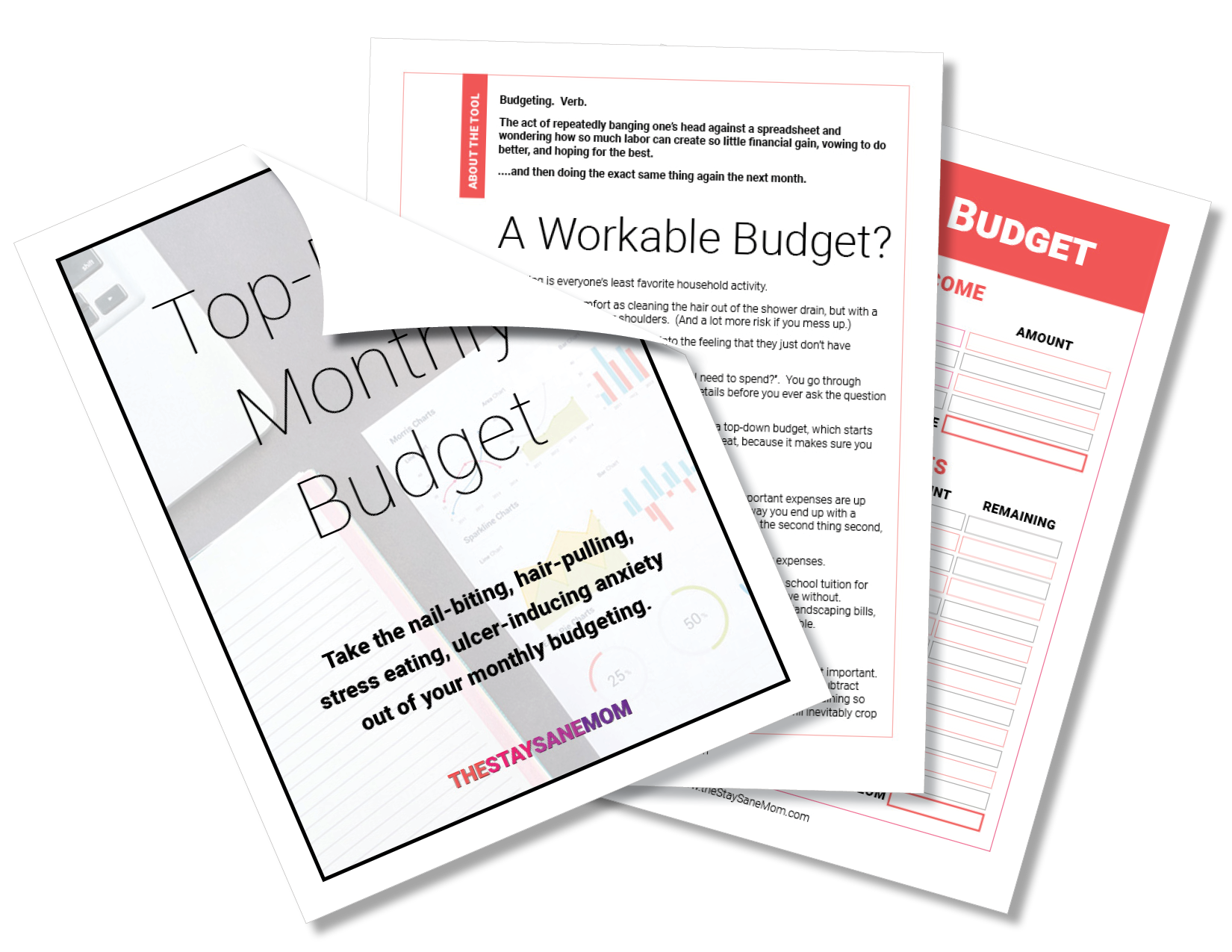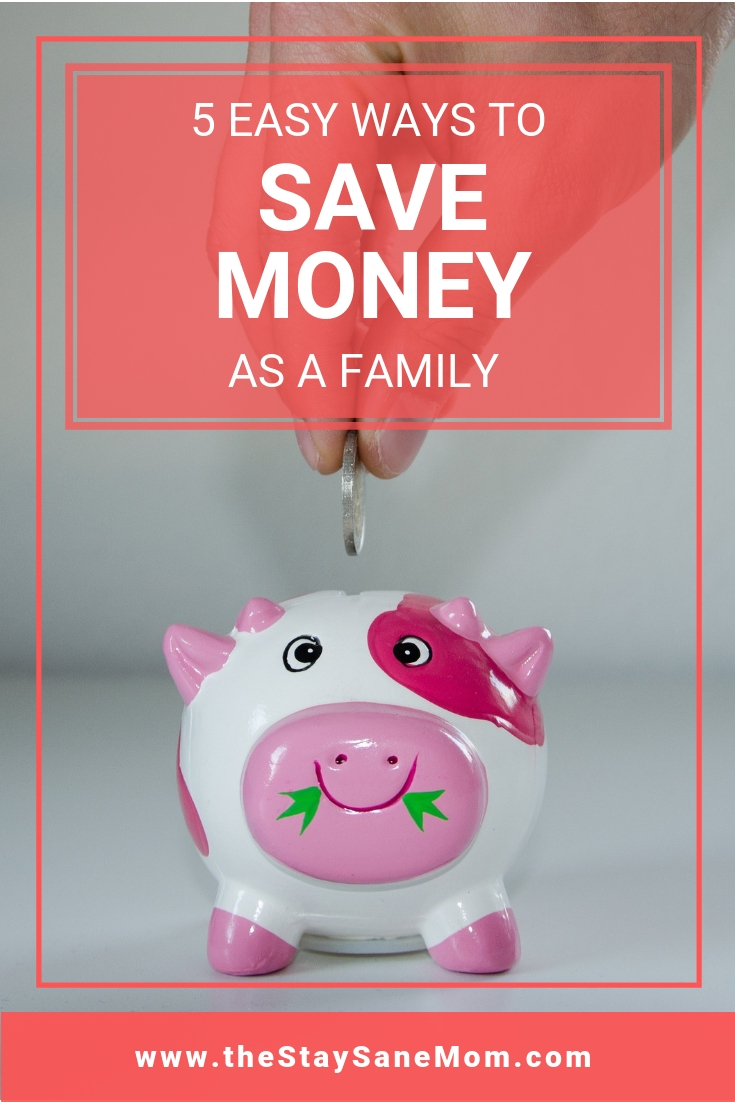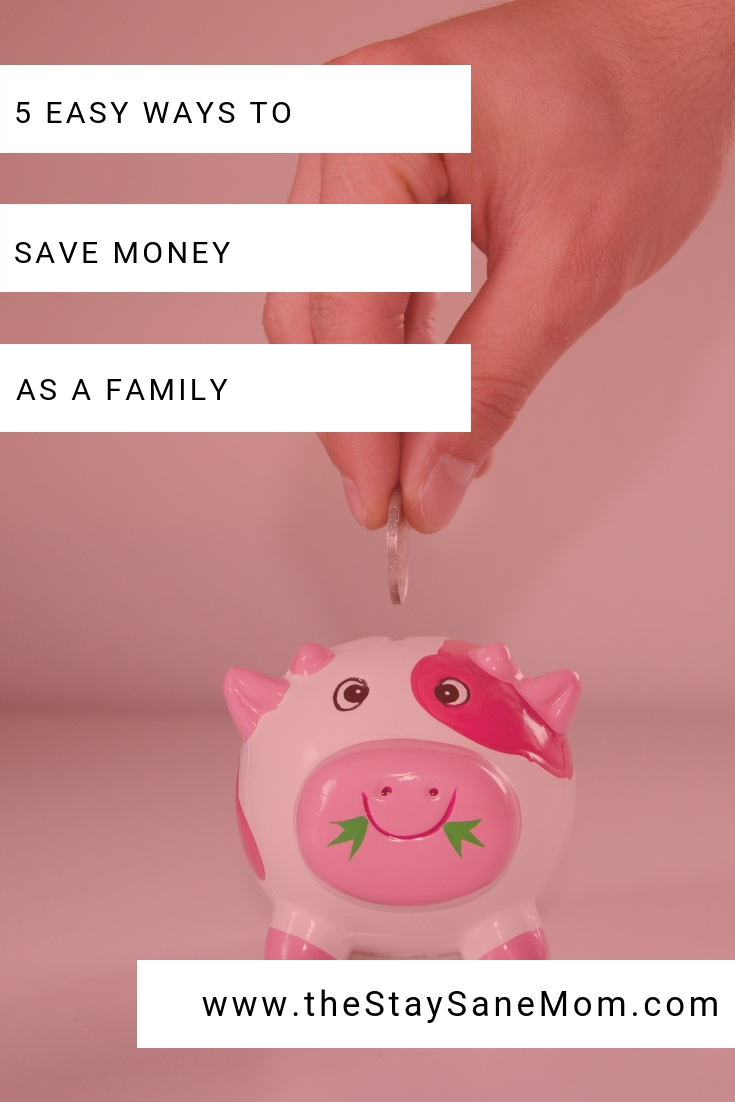How to Save Money as a Family

How to Save Money as a Family
If you want to figure out how your family can save money and create a more positive financial situation, then read on to discover my top tips to help you get started saving money as a family.
Written by Liz Bayardelle, PhD | See Comments | Updated 08/15/2019
Want to cut to the chase?
Failproof Monthly Budget

How to Save Money as a Family
This post contains some affiliate links for your convenience. Click here to read my full disclosure policy.
Starting a family by having children of your own is one of the most expensive things you can do in life.
That’s right, you heard me, expensive car collectors. You’ve got nothing on the three sets of college tuition bills I’m looking at. Get in line.
Even in the short term, the costs incurred just from simple things such as food and clothing are almost non-stop and finding ways to save some money for larger events like birthdays and holidays can seem almost impossible. (Not to be a downer or anything.)
However, with a bit of thought and a lot of planning, you can ensure that your income covers the cost of living as well as providing you and your family with enough left over to enjoy yourselves properly (both today and in the long term).
Unfortunately, being frugal is not a hill you can scale on your own. You obviously need the cooperation of your spouse, but it’s still an uphill battle if you don’t train your kids to be financially savvy as well. Having kids that demand to be bought everything in sight can be exhausting (mentally) and draining (financially), but that doesn’t help you turn off the parental urge to pamper the little, human, beastmonsters you love more than life itself.
The only solution is to make saving money a family goal and to train your kids to be fiscally-minded as well.
If you want to figure out how your family can save money and create a more positive financial situation, then read on to discover my top tips to help you get started saving money as a family.
#1: Create a Monthly Budget
It’s really easy: you can’t save money if you don’t know how much money comes into and out of the house each month.
The easiest way I’ve found is to create a top-down budget, which helps you start with your income and figure out your expenses from there rather than starting expenses-first (which can get you in hot financial water faster than you can say “but I need a jetski”). If you need help doing this, check out my free Google sheets template that shepherds you through the creation of a top-down, income-first monthly budget.
Having a monthly budget that is ACCURATE is really the first step any household needs to take in order not to spend recklessly...possibly without even knowing it!
#2: Account for One-Time Expenses
Your monthly budget might be great for things like bills, tuition, food, or other things that happened pretty regularly each month.
However, the most common mistake I see in people's budgets is that they don't have a way to account for expenses that happened once in a while, especially huge expenses that happen yearly. I'm talking property taxes, car insurance, house insurance, DMV registration fees for your cars, tuition you have to pay each semester for your kids, or anything else that doesn't happen on a monthly basis.
These expenses can absolutely sink a monthly budget because you fall into that horrible hellhole of missing your budget not because you’re spending frivolously, but because of a completely necessary expense, yet feeling like a financial failure because you don't have the money to cover it.
This is why it's absolutely necessary to set up a yearly expenses savings account. I explained this in depth in this post, but it basically entails adding up all of your yearly expenses then dividing by 12 and putting that amount into a savings account each month. Then when I expense comes up, you simply take out the amount you need from your yearly expenses account without touching your monthly budget.
#3: Set A Weekly Budget & Stick To It
Possibly the best way to save money is to create some kind of budget that your family must stick to each week. A monthly budget is great to keep an eye on the big picture, but for those of us with permanent mom brain that literally can't remember what day it is, remembering what you spent on the 1st of the month is almost impossible by the time the 23rd rolls around.
A weekly budget is something you can easily keep in mind, and it gives you shorter periods for failure, so if you mess up one week you can make up for the next week and still make a monthly budget.
This should include all meals and sources of food, gas and other transport costs, and anything else that you are certain to shell out for, as these are constants that cannot be reduced or removed.
Evaluate your current spend in order to see which areas can cost a little less, such as opting for supermarket own-brand produce or fresh ingredients rather than expensive ready meals or restaurant dishes. Try to minimise trips in the car by getting all of your chores and tasks done at the same time, rather than heading backwards and forwards adding more miles to the clock. If you get midway through the week and have already used up a large percentage of your budget, try to make the most of what you already have by making meals from your cupboard and freezer ingredients, and walk as much as possible to avoid having to spend more money on fuel.
4#: Don’t Get Yourself Into Hot Water
The biggest financial problem is that once you are in trouble it is 10 times harder to get out of it than it was to get into it in the first place. If you get in debt for $100, it might take $500 to get yourself out of debt.
Credit card debt has the highest interest rate in the biz, so the temptation to “just throw it on the card” is incredibly dangerous.
You don’t want to end up needing a loan service, but if you do please use a respectable one like CreditKarma or https://www.hittasmslan.com, not some shady payday loan place that will charge you 407%, a sacrificial goat, and a limb in interest.
However, the whole point of budgeting is that you never get in hot water in the first place.
So, with that said, let’s talk about some ways you can get the kiddos involved in your new financial wisdom kick.
#4: Learn To Say No Now, So You Can Say Yes Later
This one applies both to yourself and to your kids.
The amazing Dave Ramsey uses the quote “ you need to live like no one else if you want to live like no one else”, basically stating that you have to be willing to make short-term sacrifices others won't make if you want financial games later that others won't have. This is a hard mindset to get into for yourself, but it is kind of addicting once you get the hang of it.
On the other foot, it’s tough to say no to your little one as a parent, especially when they desperately long for something. However, declining some of their requests actually allows you to say yes more often in the future, as you will be able to create a better financial situation and essentially offer funds when they are able to understand the true value of what they gain.
It’s impossible to provide your family with every single thing they want, and you must lose the responsibility of trying to do so if you want to protect your economic situation. Saying no to a ‘new’ game advertised on TV each week will be forgotten when you are able to instead take your whole gang on a holiday to an amazing location with the money that you have managed to save!
#5: Teach Your Kids Financial Skills Early
It’s incredibly important to teach your kids how to manage money...and teach them young!
The best way to do this is to give them real world examples and actual control over the results. And by doing this, I of course mean chores! There is a crazy amount of research on the benefits of giving your kids chores. Kids with chores grow up to do better in school, have higher paying careers, and be more psychologically well-balanced. However, it isn’t easy to structure a chore chart.
If you’re not sure how to go about it, try my free printable chore chart that can be customized for kids from toddler to teen.
By giving a kid a chore chart they have their own little sandbox in which they can experiment with how to earn money, the value of money, and how to spend their money responsibly.
It’s also important to work finances into your everyday life. Show them a $10 piece-of-crap toy at the grocery store and then a nice $50 toy at the toy store (or online). Teach them that if they forgo an item at the grocery store five consecutive shopping trips, they can get something really nice that they actually want. If you help them learn that objects have financial value early on, it’ll be less of a shock later when they can’t *gasp* have everything they want.
Once kids start working (or if they have hourly pay for certain chores) you can start translating things into their hourly wage. That concert ticket isn’t $120, it’s 12 hours of babysitting for the neighbor. Your swanky new jeans aren’t $96, they’re 8 hours of mowing the lawn. Thinking of expenses by how that much money would be earned is great practice for your kiddos...and is actually how things work in the real world.
Financial Wisdom Grows with Time
Any time you have an opportunity to teach your kids how to save money, the value of money, or how to deal with financial issues, you’re planting a seed that will grow as they do.
Also, the more financially savvy you make your kids, the better it is for you and for your finances.
If you have any other strategies you’ve tried with your kiddos, leave them in the comments so we can all benefit from the collective wisdom!
Start Your Next Step
Failproof Monthly Budget

Get Sanity, Delivered to Your Inbox.
Care to Share?




About the Author

Liz Bayardelle, PhD
Founder | Contributor
Liz (or Dr. Mommy, as her toddler started calling her after learning what a PhD was) is the happily sleep-deprived mom of a toddler (and professional raccoon noise impersonator), a sparkle-clad kidnado, a teenage stepdaughter, 200 cumulative pounds of dog, and herd of dustbunnies (if daily vacuuming doesn't occur). During nights and naptimes, she uses her PhD in business psychology as an author, speaker, and consultant. She also serves as an executive and principal for three companies, two of which she co-founded with her very patient (and equally exhausted) husband.





-Budget.jpg)